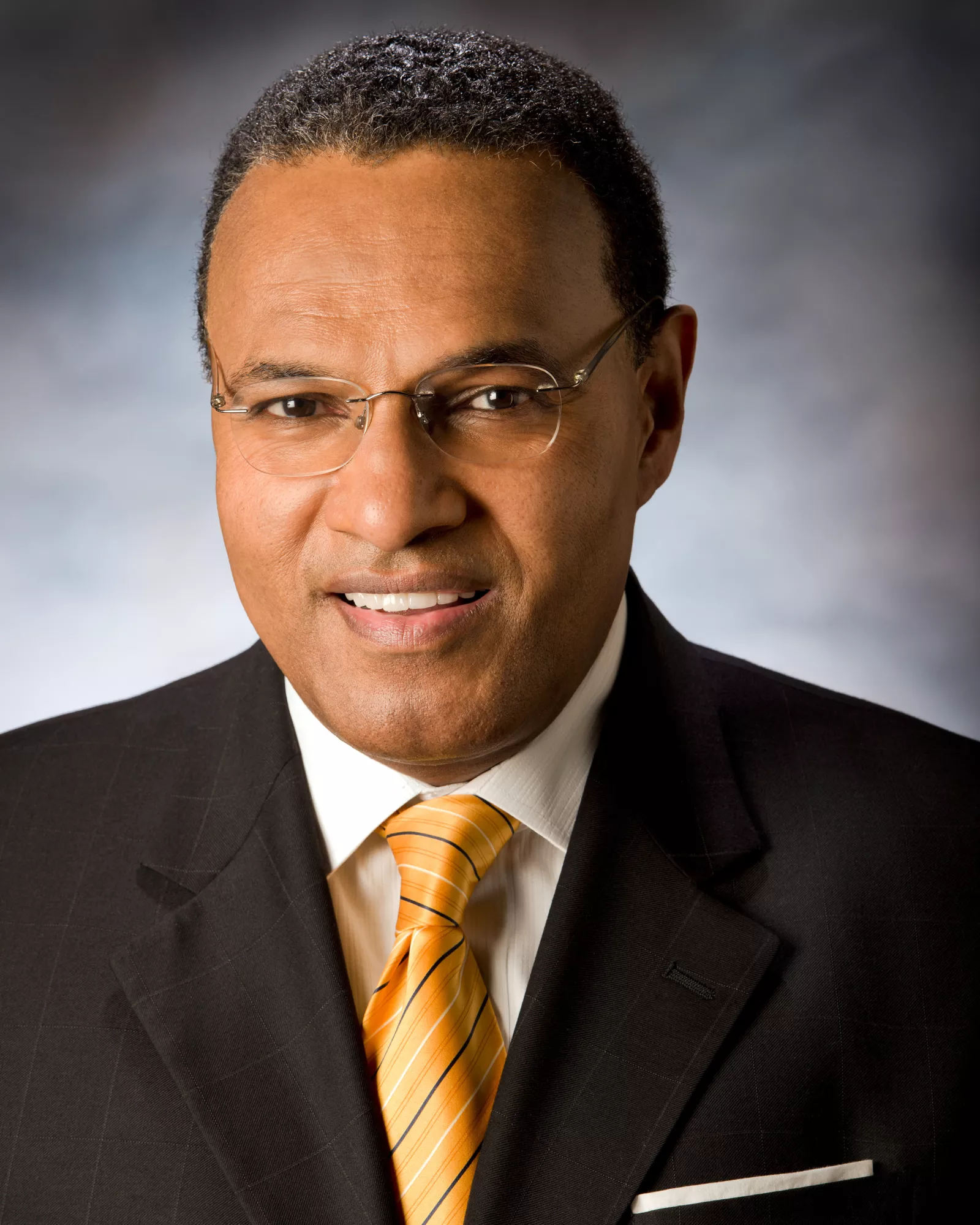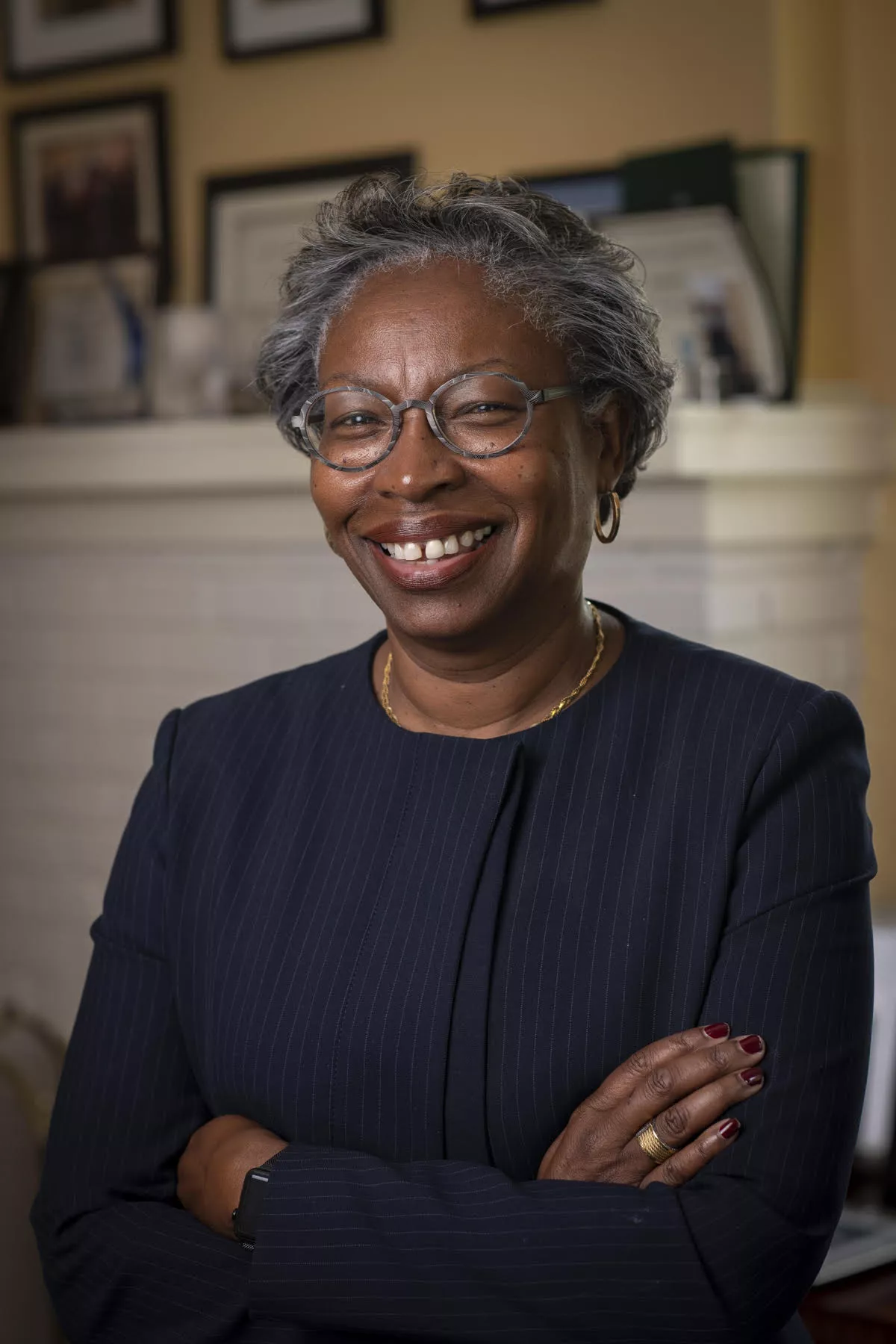The Stories Behind Careers Dedicated to Inclusive Excellence | March 23 Event
Dr. Freeman Hrabowski and Dr. Tuajuanda Jordan, two national leaders in transforming STEM education and student success, are visiting Bryn Mawr on Thursday, March 23, to launch Bryn Mawr’s new Advancing Inclusive Excellence series.
“When faculty asked students what they wanted to get from these events, they said they wanted to hear people’s personal stories,” says Bryn Mawr Chief of Staff Ruth Lindeborg, who conceived the series along with President Kim Cassidy.
And what stories they have to tell!
Dr. Freeman Hrabowski, president emeritus of University of Maryland
“How Freeman Hrabowski got to UMBC is a journey through American history and there’s a story in his name,” said Byron Pitts in introducing a 60 Minutes profile of the educator in 2011.
To start the interview, Pitts asks, “How does a Black man get the name Hrabowski?”
“You’re asking the question that most people just look at me and think,” Hrabowski laughingly replies. He then goes on to talk about how his grandfather’s grandfather was a Polish slave owner and how he is the third Freeman Hrabowski.
“My grandfather was the first one born a freeman as opposed to having to be freed,” Hrabowski tells Pitts.
As the far-ranging interview continues, Hrabowski recalls being arrested and jailed for five days as a 12-year-old for participating in a civil rights march in his hometown of Birmingham, enrolling in college at the age of 15, and his career in higher education with a focus on his time as UMBC's president, where the number of students from traditionally underrepresented groups majoring in STEM became well above the national average. Of particular note was the school's Meyerhoff Scholars program.
The Meyerhoff Scholars Program has been at the forefront of efforts to increase diversity among future leaders in science, technology, engineering, and mathematics by supporting students who intend to pursue a Ph.D. or combined M.D./Ph.D. in STEM. The UMBC Meyerhoff family is now more than 1600 strong with over 1400 alumni across the nation, which includes over 300 students enrolled in graduate and professional programs.
At the end of the interview, Hrabowski talks about his belief in students to achieve and the role of educators in guiding them.
"You hear people say at the beginning of the year. 'Look at the person on your left, look at the person on your right.' Most people who have gone to college have heard the dean say, 'One of you will not graduate' and it's a self fulfilling prophecy. If I'm at all insecure, or I know I'm a little immature, I'm going to say, 'Oh my gosh he's talking about me. I might as well party this year because I'm not going to be here next year' and it happens. We say, look at the student on your left and look at the student on your right, our goal is to make sure all three of you graduate. And if you don't, we fail, and we don't plan to fail because we accepted you because we know you can do this work."
Watch the full interview on YouTube.
Dr. Tuajuanda Jordan, president of St. Mary’s College of Maryland
Like Hrabowski, Jordan also grew up in the segregated south. She was also a first-generation, Pell-eligible college student.
She went on to be the first African-American woman to get a Ph.D. in biochemistry from Purdue University, the first African-American director at the Howard Hughes Medical Institute, and the first African-American dean at Lewis and Clark College.
Jordan has described herself as being “one of those at-risk kids” but credits her maternal grandmother and mother for helping her succeed in spite of life’s challenges.
In a talk at Wagner College, Jordan spoke about how her grandmother, who worked as a live-in maid and only had a third grade education, and mother—“one of the smartest people I know from her generation but who didn’t get to go to college”—influenced her.
“They told me, ‘No matter what you have to go to college because you have to make sure you can take care of yourself and your responsibilities no matter what is thrown your way.’”
Jordan received full scholarships to several big-name schools she had applied to based solely on knowing them because of their success in sports but ultimately chose the HBCU Fisk University after seeing a brochure in a guidance counselor’s office.
“So I applied to Fisk, and I got accepted into Fisk, and I went to Fisk sight unseen. Why? Because my family didn’t have the money for me to go visit colleges to see whether or not I was going to like them. So you just had to go on faith, and when I got to that campus, and I stepped out of my dad’s car, I knew I was supposed to be there.”
At Fisk, Jordan learned about something called the Minority Access to Research Careers Program that would make it possible for her to get a Ph.D. from Purdue.
“When I graduated, Fisk had 1,200 students total and the first day of class at Purdue and I walked onto the quad and said, ‘My Lord, what have I done?’ I felt like I was in a sea of white and no one looked like me”
Jordan struggled that first semester. So much so that one night se rented a car and drove all the way from Indiana to Virginia to seek the wisdom of her grandmother.
“She told me that I was not stupid, that I was incredibly bright. She also made me remember who I am, that I had good family…she said, ‘Look at what you come from, you can do this, don’t let them defeat you. Get your butt back in the car and get back to school.’”
As president of St. Mary's College and in her previous roles, Jordan has led a number of efforts to promote diversity and excellence among students and faculty. Jordan gained national prominence in the realm of science education with the creation of the Howard Hughes Medical Institute’s Science Education Alliance (SEA) program and the launch of its first initiative, the SEA-PHAGES program, which engaged novice undergraduates in research in genomics and bioinformatics. This program has been implemented at more than 50 diverse institutions across the nation, impacted thousands of students and faculty, and resulted in numerous scientific and pedagogical publications.
Advancing Inclusive Excellence: Expanding Access, Opportunity, & Success in STEM | Event Information

